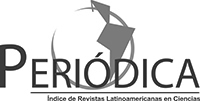El fin de la Botánica
DOI:
https://doi.org/10.24215/25456377e067Palabras clave:
Reduccionismo, Reificación, Lenguaje y realidad, Lógica de mercado, Disciplina, América Latina,Resumen
A pesar de que las plantas representan la base para la supervivencia de la vida sobre la Tierra, la Botánica del siglo XXI está pasando por una crisis. El número de estudiantes de Botánica, de cursos de Botánica, de colecciones de plantas, de departamentos de Botánica en las universidades y de botánicos participando de reuniones y convenciones ha ido declinando en los últimos años. En un intento por comprender este problema, se analizan los siguientes temas: el reduccionismo científico, el estado de las colecciones de historia natural, la lógica del mercado aplicada a la ciencia, y el lenguaje como constructor de la realidad. Estos temas se enmarcan dentro de una perspectiva latinoamericana. La ambigüedad del título de esta contribución: ¿cese o propósito?, debería inclinarse hacia el propósito, basándose en el reconocimiento del problema, en la historia de la botánica latinoamericana y en la grandiosa biodiversidad de América Latina.Referencias
Able, K.W. (2016) ?Natural history: an approach whose time has come, passed, and needs to be resurrected?, ICES Journal of Marine Science, 73 (9), pp. 2150-2155. DOI: 10.1093/icesjms/fsw049
Arnold, S.J. (2003) ?Too much history, or too little??, Animal Behaviour, 65, pp. 1065-1068. DOI: 10.1006/anbe.2003.2143
Belkin, D. (2018) ?Rhododendron? Hydrangea? America Doesn´t Know Anymore??, Wall Street Journal, 14 de Agosto de 2018. https://www.wsj.com/articles/rhododendron-hydrangea-america-doesnt-know-anymore-1534259849
Bordelois, I. (2004) La palabra amenazada. Buenos Aires: Libros del Zorzal.
Cabanillas, P.A., Barral, L.E., Guerrero, E.L., & Chimento, N.R. (2016) ?Categorización y valoración del Estado de conservación de una sección de bosque de la ribera de Quilmes y Avellaneda (Buenos Aires, Argentina)?, Historia Natural, 6 (1), pp. 83-109.
Carroll, L. (1871) Through the looking-glass, and what Alice found there. London: Macmillan Publishers.
Ceballos, G., Ehrlich, G., & Dirzo, R. (2017) ?Biological annihilation via the ongoing sixth mass extinction signaled by vertebrate population losses and declines?, Proceedings of the National Academy of Sciences of the United States of America, 14 (30), E6089-E6096. https://doi.org/10.1073/pnas.1704949114
Conniff, R. (2016) ?Our natural history, endangered? The New York Times, Opinion, 3 de Abril de 2016. https://www.nytimes.com/2016/04/03/opinion/ournatural-history-endangered.html
Crisci, J.V., & Apodaca, M.J. (2017)? Los rankings globales de universidades y su función disciplinaria? Revista del Museo de La Plata, 2 (2), pp. 12-18. https://publicaciones.fcnym.unlp.edu.ar/rmlp/article/view/2197
Crisci, J.V., & Katinas, L. (2017) ?Las colecciones de historia natural: Memoria colectiva de la humanidad?, Revista Museo, 29, pp. 23-30. http://sedici.unlp.edu.ar/bitstream/handle/10915/64282/Documento_completo__.pdf-PDFA.pdf?sequence=1&isAllowed=y
Dobzhansky, T. (1971) Genetics of the Evolutionary Process. New York and London: Columbia University Press.
Dobzhansky, T. (1974) ?Introductory remarks?. En: Ayala F.J., Dobzhansky T. Eds. Studies in the Philosophy of Biology: Reduction and related problems. London: Palgrave.
Eagleton, T. (1983) Literary Theory. An introduction. Minnesota: University of Minnesota Press.
Eagleton, T. (2016) Esperanza sin optimismo. Buenos Aires: Taurus.
Foucault, M. (1976) Vigilar y castigar. Nacimiento de la prisión. Buenos Aires: Siglo Veintiuno Editores.
Funk, V. (2014) ?The erosion of collection based science: Alarming trend or coincidence??, The Plant Press, 17 (4), pp. 1-13.
Funk, V. (2018) ?Collections-based science in the 21st Century?, Journal of Systematics and Evolution, 56 (3), pp. 175-193. DOI: 10.1111/jse.12315
Futuyma, D.J. (1998) ?Wherefore and whither the naturalist??, The American Naturalist, 151 (1), pp. 1-6. DOI: 10.1086/286097
Galeano, E. (2001) Las Palabras Andantes. 5º edición. Buenos Aires, Argentina: Catálogos S. R. L.
Grant, P.R. (2000) ?What does it mean to be a Naturalist at the end of the twentieth century??, The American Naturalist, 155 (1), pp. 1-12. DOI: 10.1086/303304
Gramsci, A. (1975) El materialismo histórico y la filosofía de Benedetto Croce. México: Juan Pablos Editor.
Greene, H.W. 2005. ?Organisms in nature as a central focus for biology?, Trends in Ecology & Evolution, 20 (1), pp. 23-27. DOI: 10.1016/j.tree.2004.11.005
Grossi, M.A., Draper, D., Apodaca, M.J., Vitali, M.S., Pataro, L., Katinas, L., & Moreno Saiz, J.C. (2017) ?The road to 2020 targets and the learnings from the emblematic South American plant genus Nassauvia (Asteraceae)?, Biodiversity and Conservation, 26 (2), pp. 329-351. doi:10.1007/s10531-016-1245-0
Guerrero, E.L., Agnolin, F.L., & Apodaca, M.J. (2018) ?Extinción a nivel local y regional en los pastizales del noreste de la provincia de Buenos Aires (Argentina)?, Revista del Museo Argentino de Ciencias Naturales., n.s. 20 (2), pp. 359-369
Hazelkorn, E. (2014) ?Rankings and the global reputation race. New directions for higher education?, Critical perspectives on global competition in higher education, 168, pp. 13-26. DOI: 10.1002/he.20110
Jones, A.M. (2014). ?The planet needs more plant scientists?, The Scientist, News & Opinion, Opinion, 1 de Octubre de 2014. https://www.the-scientist.com/opinion/opinion-the-planet-needs-more-plant-scientists-36742
Kemp, C. (2015) ?Museums: The endangered dead?, Nature News, 518, pp. 292-294. https://www.nature.com/news/museums-the-endangered-dead-1.16942
Kirshner, R.P. (1994) ?Violent events in M51?, Nature, 371, pp. 199-200.
Lukács, G. (1971) History and class consciousness. Cambridge: The Mit Press.
Maddox, J. (1998) What remains to be discovered. NewYork: Free Press.
Mayr, E. (2006). Por qué es única la biología: consideraciones sobre la autonomía de una disciplina científica. Buenos Aires: Katz Editores.
Mazzochi, F. (2012) ?Complexity and the reductionism-holism debate in systems biology?, WIREs Systems Biology and Medicine, 4 (5), pp. 413-427. DOI: 10.1002/wsbm.1181
Nature Editorial (2014) ?Save the Museums?, Nature, 515, pp. 311?312.
Nature Editorial (2017) ?Risky in the jar?, Nature, 544, pp. 137-138.
Sauder, M., & Espeland, W.N. (2009) ?The discipline of rankings: Tight coupling and organizational change?, American Sociological Review, 74 (1), pp. 63-82. DOI: 10.1177/000312240907400104
Saussure, F. (1945). Cours de linguistique générale. Paris: Payot.
Schmidly, D.J. (2005) ?What it means to be a naturalist and the future of natural history at American universities?, Journal of Mammalogy, 86 (3), 449-456. DOI: 10.1644/1545-1542(2005)86[449:WIMTBA]2.0.CO;2
The Shenzhen Declaration Drafting Committee. (2017) ?The Shenzhen
Declaration on Plant Sciences?Uniting plant sciences and society to build a green, sustainable Earth?, PhytoKeys, 86, pp. 3?7. DOI: 10.3897/phytokeys.86.20859
Wandersee, J.H., & Schussler, E.E. (1999) ?Preventing plant blindness?, The American Biology Teacher, 61 (2), pp. 84-86. DOI: 10.2307/4450624
Woodland, D.W. (2007) ?Are botanists becoming the dinosaurs of biology in the 21st century?? South African Journal of Botany, 73 (3), pp. 343-346. DOI: 10.1016/j.sajb.2007.03.005
Publicado
Número
Sección
Licencia
La publicación en la RMLP se realiza bajo los términos de la licencia de uso y distribución Creative Commons BY-NC-SA 4.0 para Argentina (https://creativecommons.org/licenses/by-nc-sa/4.0/) que permite a terceros la distribución, la copia y la exhibición del artículo siempre que citen la autoría del trabajo, la publicación en la RMLP, número concreto y las páginas en la que encontraron la información. No se puede obtener ningún beneficio comercial y no se pueden realizar obras derivadas con fines comerciales que no autorice la editorial. Si se remezcla, transforma o construye sobre el material, deben distribuir sus contribuciones bajo la misma licencia que el original.
La puesta a disposición del artículo en la RMLP supone para los autores argentinos el cumplimiento de lo establecido en la Ley 26899 de Creación de Repositorios Digitales Institucionales de Acceso Abierto, Propios o Compartidos, del 13/11/2013 en su artículo 5º, en lo relativo a la obligatoriedad de facilitar en acceso abierto los resultados de investigaciones financiadas por agencias gubernamentales y de organismos nacionales de ciencia y tecnología del Sistema Nacional de Ciencia, Tecnología e Innovación.









